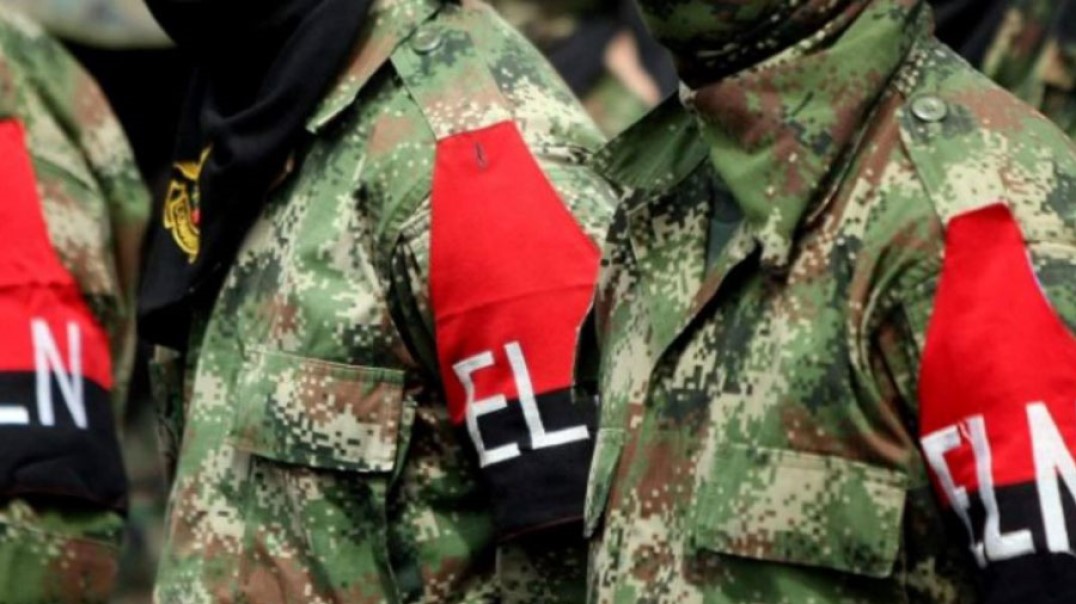Miner’s Forced Out:
An estimated 7,000 people have reportedly been evacuated from an illegal mine located in the state of Bolívar, Venezuela, on Thursday. This comes following a government operation within the country to curb illegal mining, both due to the danger to human lives as well as environmental concerns.
The evacuations center around a mine that faced collapse in February, which led to the deaths of 16 people and the injuries of 36 others.
Authorities have already begun destroying illegal mining camps, which have cropped up all across southern Venezuela as poor miners seek to provide for themselves and their families, in corroboration with various criminal groups active in Venezuela.
#FANB en cumplimiento de los planes de seguridad y defensa y resguardo ambiental se encuentra desplegada en las operaciones Neblina y Roraima, en los estados Amazonas y Bolívar, habiendo desalojado y evacuados de la áreas de protección especial más de 7 mil mineros ilegales… pic.twitter.com/yjx5cMpC3y
— GJ. Domingo Hernández Lárez (@dhernandezlarez) March 14, 2024
One such group known to operate within Venezuela is the Colombian National Liberation Army (ELN), which commonly uses illegal mining to fund its war against the government and other narco-terrorist organizations within Colombia and its surrounding nations.
Venezuelan authorities have also undergone efforts to reduce the impact of illegal logging in the nation, launching a number of offensives against illegal loggers and deploying 2,500 military personnel to national parks, forest reserves, and hydrographic basins in order to combat both illegal logging and mining within the nation.
Illegal mining in South America:
Illegal mining is no stranger to South America, as the continent is rich in resources such as gold and other precious metals, and the lack of strong authority facilitates these operations. Previously, a mine operated by the Zijin mining company in Colombia was forced to cease an estimated 60% of operations for a time last year after illegal miners under the protection of Clan del Golfo, a right-wing paramilitary and narco-terrorist organization, threatened the security of miners employed by the Chinese corporation.
Miners use liquid mercury in order to extract gold and other precious metals, which poses an environmental risk and has previously led to water supplies being contaminated. According to tearline.mil, miners often use liquid mercury due to its low cost, ease of use, and efficiency when it comes to finding gold.
Dile no a la minería ilegal ! La preservación y cuidado de los parques nacionales es preocupación del Estado, incluida en el 5to objetivo estratégico del Plan de la Patria y en la 6ta de las 7T de las transformaciones.
Es fundamental que los ciudadanos internalicen el… pic.twitter.com/53IglpVXPk
— GJ. Domingo Hernández Lárez (@dhernandezlarez) March 14, 2024
Negative side effects of high mercury levels within humans and animals can lead to reproduction issues, learning disabilities in children if ingested by pregnant women, neurological, kidney, gastrointestinal, genetic, cardiovascular, and developmental disorders, and in extreme cases, death. Mercury commonly enters humans through the consumption of fish located in areas with high mercury concentrations in the water. Animals who feed on fish are also at risk of developing mercury poisoning, with animals such as bears and eagles commonly becoming affected.
In a recent hearing in the US Senate regarding illegal mining, Carrie Filipetti, the Deputy Assistant Secretary of the Bureau of Western Hemisphere Affairs stated that “over 90 percent of people working in the mines in Bolivar had unsafe concentrations of mercury in their urine, with effects also reaching 87 percent of women and 68 percent of percent of children.”
Analysis:
Illegal mining in South America is especially prolific due to the amount of valuable metals on the continent as well as the economic situation of unskilled laborers, leaving many with little prospects. This, along with the violence that faces rural Colombians and Venezuelans from the various criminal organizations active in the countryside, has led some to work directly under them in order to protect themselves and their families.
These operations are sure to continue until large-scale economic and social reforms are made in order to provide for those living in rural areas of the country, as well as the restoration of security in these regions by authorities.
The ELN:
The ELN has historically operated in Venezuela for decades; these operations only increased following the disarmament and disbanding of the Revolutionary Armed Forces of Colombia (FARC) in 2016. Following the FARC’s disbandment, the ELN and another criminal group, Clan del Golfo, quickly began to occupy the newly vacant territory, leading to a number of clashes between these groups and government forces.

The Colombian government and the ELN would reach a ceasefire in 2022 under the charge of leftist president Gustavo Petro, who has stated his top priority is to bring Colombia into an age of “total peace” by negotiating long-term ceasefires and eventual disarmaments of the various guerilla and paramilitary groups in Colombia.
Clan del Golfo:
A criminal organization formed from the ashes of the right-wing paramilitary group known as the United Self-Defense Forces of Colombia (AUC), Clan del Golfo has become the largest narco-terror group within Colombia. Following the AUC’s disbandment in 2006, Clan del Golfo would inherit vast swathes of land in northern Colombia, a key drug trafficking route into the United States through the Caribbean.

In recent days, the AUC has been hit with crackdowns following the arrest of their leader, Dairo Antonio Usuga David, also known as “Otoniel,” in October 2023. Following the arrest of Otoniel, Chiquito Malo, a key lieutenant in the organization, would take over the reigns of Clan del Golfo. Colombian authorities have maintained the operation that saw the arrest of Otoniel in order to bring down Clan del Golfo.


